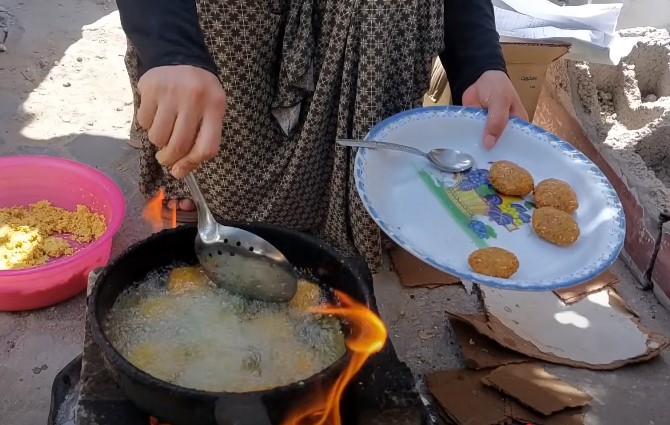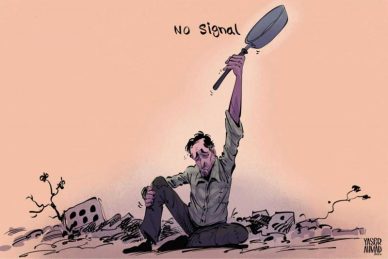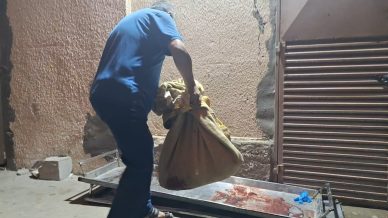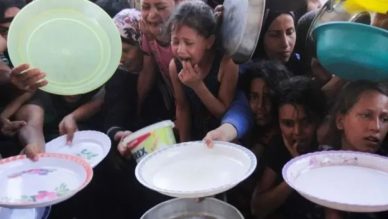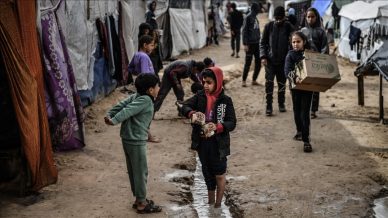GAZA, (PIC)
In Gaza’s streets—torn between rubble and suffocating silence—the sound of frying falafel used to be one of the last echoes of normal life.
Falafel, the humble and simple dish, became a lifeline for tens of thousands of families exhausted by siege, starvation, and war.
Today, as ingredients run out and prices skyrocket, falafel shops are closing their doors, leaving behind growing hunger and waves of anxiety.
“We can’t even eat falafel anymore,” says Abu Mahmoud, the owner of one of Gaza’s oldest falafel shops. His eyes filled with sorrow, he shares: “Chickpeas, oil, spices… the prices are insane. And even if we find them, they’re incredibly rare. I can’t prepare the needed amounts anymore—I’m forced to shut down.”
Deadly scarcity and soaring prices
According to many shop owners, the cost of essential frying ingredients like vegetable oil and chickpeas has increased by over 600%. With complete closure of border crossings and a ban on food supplies, markets have turned into desperate hunting grounds, where people search for anything to ease their hunger—even just a bite.
“We used to buy falafel sandwiches for our kids, laugh, and lift their spirits,” says Umm Ahmad, a mother of five. “Today, a falafel sandwich is a dream. There’s no falafel, no oil, not even bread.”
A symbol of resilience is crumbling
Falafel had long stood as a symbol of Gaza’s resilience amid crisis—cheap, available, filling, and infused with the warmth of home and memory. Today, its disappearance from the market signals the depth of the unfolding humanitarian catastrophe.
This isn’t just the loss of a meal—it’s a clear declaration that famine is pounding on Gaza’s doors.
Where Is the aid?
Relief organizations are warning of an unprecedented food disaster and are calling for urgent global action. But so far, these calls remain mere words drowned out by the roar of shelling and the whine of aircraft.
In the refugee camps and destroyed cities, children wait for help that never arrives, and people fear the days ahead—when not even a crust of dry bread may be found.
UN Commissioner warns
UN High Commissioner for Human Rights Volker Türk urged the world “to act now to prevent the total collapse of life-saving humanitarian support in Gaza.”
In a statement on Tuesday, he stressed the need for international efforts “to prevent this humanitarian disaster from reaching unprecedented levels.”
He warned that “any use of starvation as a method of warfare constitutes a war crime, as does all collective punishment.”
A call to end the crime of starvation
Hamas, for its part, said that the continued use of starvation by Netanyahu’s government as a weapon in Gaza is a war crime and a blatant disregard for the international community and judicial bodies. It called for world pressure on Israel to end this systematic crime of starvation.
Hamas also urged all countries and UN institutions—especially the Security Council—to stand with humanity and justice, to pressure Israel to lift the suffocating siege imposed on more than 2.25 million people in Gaza, and to put an end to the ongoing crime of hunger witnessed by the entire world.
The Movement reiterated its appeal to Arab and Islamic nations, their peoples, and to free people around the world, to act urgently to aid the people of Gaza, push for the opening of crossings, allow in humanitarian supplies and aid, and support the resilience of Palestinians on their land.

